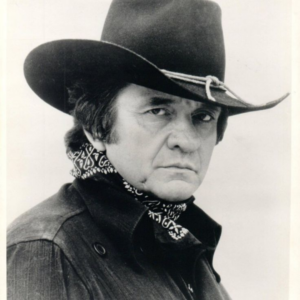
Johnny Cash, the “Man in Black,” was renowned for his gravelly baritone voice and his ability to craft songs that resonated with the working class and the marginalized. Among his vast repertoire, “Rusty Cage” stands out as a particularly haunting and introspective piece, delving into themes of despair, addiction, and the search for redemption.
Background
Released in 1994 as the lead single from Cash’s critically acclaimed album “Unchained,” “Rusty Cage” was originally written and composed by Soundgarden frontman Chris Cornell. Cash’s rendition, however, transformed the song into a poignant dirge that showcased his unique interpretive abilities.
The song’s lyrics paint a vivid picture of a man trapped in a cycle of self-destruction and hopelessness. The narrator describes a life marked by isolation, addiction, and a sense of impending doom. The imagery of a “rusty cage” serves as a powerful metaphor for the constraints and limitations imposed by one’s circumstances.
Cash’s performance is both raw and emotive, conveying a deep sense of vulnerability and despair. His voice, raspy and weathered, perfectly captures the character’s emotional turmoil. The stripped-down arrangement, featuring acoustic guitar and minimal instrumentation, further enhances the song’s intimate and haunting atmosphere.
The opening lines of the song set the stage for the narrative to follow:
“I wake up in the morning, with the sun in my face I don’t know where I am, or what I’m doin’ here”
These lines immediately establish a sense of disorientation and confusion, suggesting that the narrator has lost his bearings both physically and emotionally.
The refrain, “I’m trapped in a rusty cage,” serves as a constant reminder of the character’s predicament. The cage symbolizes the limitations and constraints imposed by his circumstances, whether it be addiction, poverty, or a lack of opportunities.
The lyrics also allude to themes of violence and self-harm, with references to “broken bottles” and “dirty needles.” These images paint a disturbing picture of a life spiraling out of control.
Despite the bleakness of the lyrics, there is a glimmer of hope at the end of the song. The narrator expresses a desire for escape and redemption, suggesting that he may be searching for a way out of his predicament.
Cash’s rendition of “Rusty Cage” is a powerful and haunting exploration of despair, addiction, and the human condition. The song’s raw emotion and evocative imagery resonate with listeners on a deep level, making it a timeless and enduring piece of music.
Video
In addition to its critical acclaim, “Rusty Cage” also garnered commercial success, reaching number 1 on the Billboard Hot Country Singles chart. The song’s popularity helped to revitalize Cash’s career and introduced him to a new generation of fans.
Cash’s performance of “Rusty Cage” is a testament to his artistry and his ability to connect with audiences on a profound level. The song’s enduring power lies in its ability to capture the universal human experience of suffering and the search for redemption.